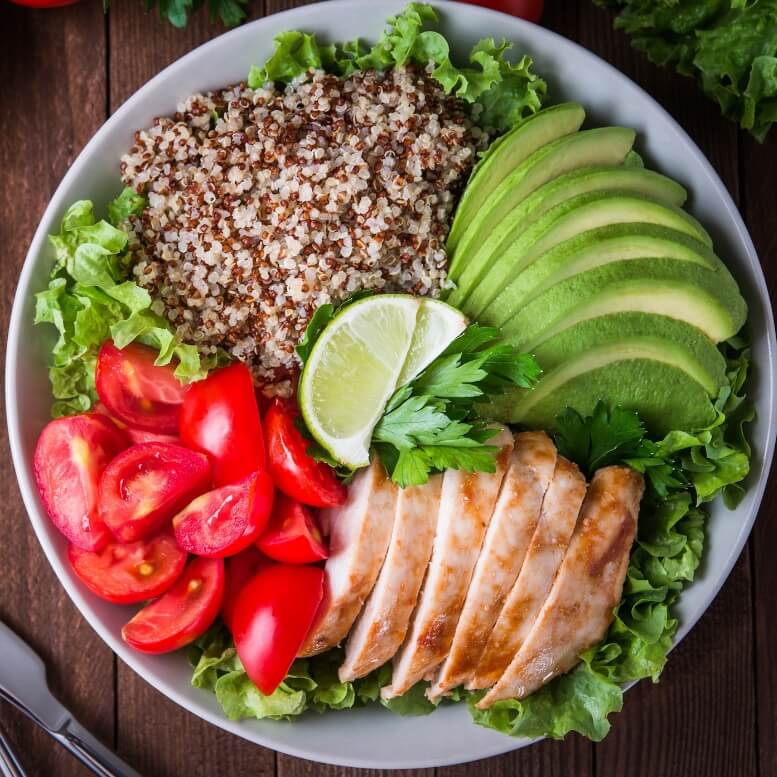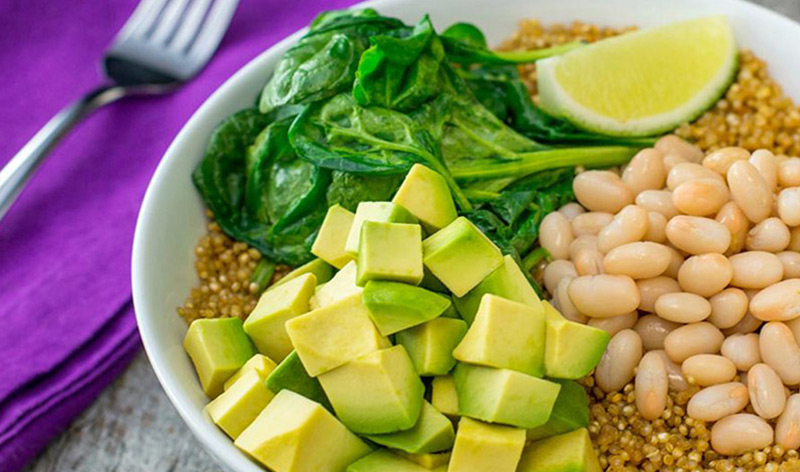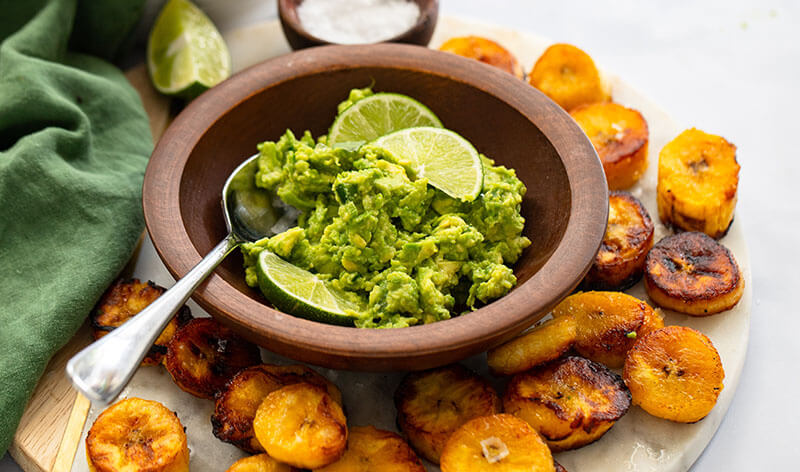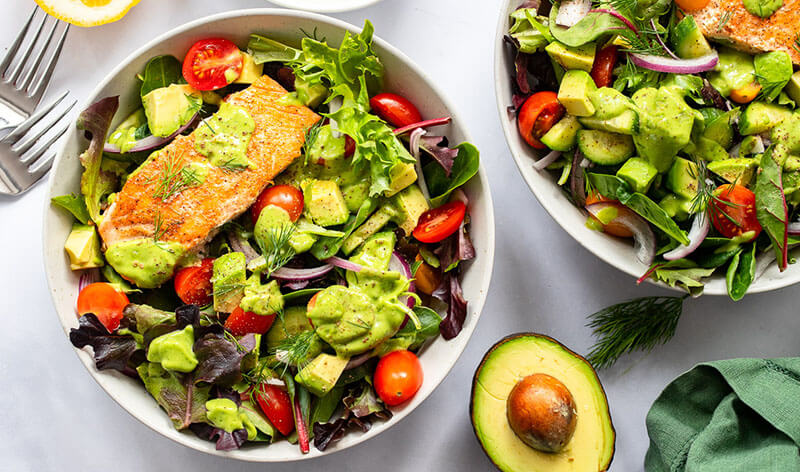Research suggests that veterans face unique challenges regarding gut health, mental resilience, and overall well-being when compared to nonveterans. Military service, exposure to environmental factors, and stress can disrupt the gut microbiome — a complex community of trillions of microorganisms that live in the digestive tract.
These microbes play a vital role in digestion, nutrient absorption, immune defense, and even brain function. When the gut microbiome is imbalanced, it can lead to digestive issues and increased risks of PTSD, anxiety, and chronic fatigue. A healthy gut microbiome supports immune function, digestion, and mental health.

Key Takeaways:
- Gut Health and Mental Resilience: The gut-brain axis links digestive health to mood regulation. Imbalances in gut bacteria may contribute to mental health conditions like anxiety and depression.
- Dietary Recommendations:
- Prioritize fiber (whole grains, fruits, vegetables) to nourish gut bacteria.
- Include probiotic and prebiotic foods like yogurt, kimchi, and garlic.
- Consume healthy fats from avocados, nuts, and olive oil to support brain health.
- Avoid excessive processed foods, alcohol, and sugar, which can disrupt the gut microbiome.
- Lifestyle Strategies for Veterans:
- Exercise regularly to improve digestion and mental health.
- Manage stress through mindfulness, therapy, and support networks.
- Get adequate sleep, as poor sleep can worsen gut health and mood disorders.
- Veteran-Specific Considerations:
- Gulf War Illness & Digestive Issues: Veterans exposed to environmental toxins often experience gut-related conditions like IBS.
- PTSD & Nutrition: A Mediterranean-style diet may reduce depression risks and support emotional balance.
- VA Resources: The VA offers research, support, and treatment for veterans with digestive concerns.
Veterans of any age face a significant transition when re-entering civilian life. Without the military providing as much support as to active-duty military members, veterans are often left in the lurch to address the health challenges they either earned during their service or the conditions they faced in service. Some of these challenges may arise or worsen due to lack of good nutrition. Without proper nutrition, veterans may have imbalances in their gut health, which can then lead to mental and physical health challenges and a lack of energy.
In this guide, we’ll explore how a lack of nutritional guidance can lead veterans astray, how to manage mental and physical well-being with nutrition, and how gut health can support overall well – being.
Challenges Veterans Face
The demands of military service — both during active duty and after discharge — can take a lasting toll on overall well-being. For one, many veterans experience mental health concerns either because of their military service or their experience transitioning to civilian life. For instance, 14 to 16% of veterans who deployed to Afghanistan and Iraq reported being affected by PTSD or depression. Likewise, suicide is also higher among veterans than civilians because of these mental health conditions. In a 2015 study of 27 U.S. states, 17.8% of all the reported suicides were veterans.
Lack of energy and fatigue are common symptoms across these mental health conditions. While veterans may attribute these symptoms to hectic schedules, they could indicate a more serious condition.
Veterans may also face physical health conditions, such as musculoskeletal and hearing disorders, traumatic brain injuries, and chronic fatigue syndrome. This may be due to exposure to harsh environments, intense physical exertion, and injuries experienced during service, according to a 2020 comparative analysis study. The same study also found that veterans are twice as likely to experience back pain as civilians.
Veterans often face significant social and emotional challenges, such as finding civilian employment or establishing a support network outside the military, making it especially important to address gastrointestinal issues that may further impact their overall well – being.
Common Digestive Issues Among Veterans & Their Causes
Veterans are also at a higher risk of developing digestive issues due to exposure to chemical warfare, chemicals, and other substances that lead to chronic illnesses. In a 2021 review, researchers found that out of 73 Gulf War veterans, 39% reported symptoms of chronic abdominal pain, diarrhea, and stool frequency. The researchers cited exposure to toxins and changes to the gut microbiome as a result.
The same review cited a study of veterans returning from Operations Iraqi Freedom and Enduring Freedom, which found that 76.8% of Iraq veterans and 54.4% of Afghanistan veterans reported diarrhea, which can be a key symptom for infection, changes in gut microbiome, and chronic conditions like IBS.
In both cases, digestive issues were cited as common concerns among veterans, no matter where or when they served. Both cases also highlight how the stress that veterans experience, along with exposure to infections and toxins, can affect the gut microbiome and disrupt digestive function.
Given the digestive issues, and the mental and physical challenges faced, it’s vital for veterans not to disregard the importance of their diet. Eating a poorly balanced diet may exacerbate these conditions. On the other hand, a balanced diet can help support overall well – being.


The Science Behind Healthy Fats and Fiber
Given the challenges veterans face regarding their gut and overall health, eating a diet rich in fiber and healthy fats can support their well-being. For one, monounsaturated fats — also known as “healthy fats,” found in foods like avocados and olive oil — can support cognitive health and focus. A recent clinical study found that 84 overweight and obese adults between the ages of 25 and 45 performed better on a cognitive test that tested attentional inhibition, known as the Flanker, Oddball, and Nogo tasks, when consuming fresh avocado daily for 12 weeks. The findings are limited and longer-term research is needed in a larger study group with one serving of avocado (50 g), but the outcomes of this study funded by the Avocado Nutrition Center add to the growing research on the potential benefits of avocados for cognitive function.
Fiber is another macronutrient that may help optimize mental resilience — both in the short and long term. A prospective study found a link between higher dietary fiber intake and increased mental health-related quality of life eighteen years later in 14,129 postmenopausal midwestern women. A food frequency questionnaire assessed diet at baseline, and mental health scales were used for the analysis during follow-up. The findings are not causal and cannot be translated to all populations.
Fiber, particularly soluble fiber, is also a food source for good gut bacteria, which can prevent dysbiosis and inflammation. Fiber can also help with digestion. While soluble fiber transforms into a gel to slow digestion and prevent diarrhea, insoluble fiber can bulk up bowel movements and help prevent constipation.
Gut-Friendly Foods to Reduce Inflammation, Boost Mood, Improve Energy
Inflammation is an issue found in both gut health and mental health conditions. Evidence collected in a review published by the Nutrients Journal indicates that chronic low-grade inflammation is associated with a variety of mental health disorders, such as anxiety, mood disorders, and other neurodegenerative diseases. If the body’s gut microbiota is in a state of dysbiosis, it can trigger inflammation and increase the likelihood of worsened mental health conditions. To avoid this, include in your diet foods that can reduce inflammation, such as:
Veterans who have seen combat may experience Chronic Fatigue Syndrome, a complex condition characterized by extreme fatigue that doesn’t improve with rest. While food alone can’t treat this syndrome, a balanced intake of macronutrients may support stamina and cognitive function, which are often affected by this condition.
Key macronutrients include:
Veterans may benefit from incorporating these foods evenly throughout the day to help support steady energy levels. Spacing out meals and snacks that include protein, healthy fats, and complex carbohydrates can help prevent energy crashes and reduce feelings of fatigue.
Lifestyle Changes for Better Gut Health
Beyond diet, there are various ways veterans can improve their gut and mental health, such as:

Over time, consistently making balanced dietary choices may support both mental well-being and gut health, although individual outcomes can vary.
Practical Meal Planning for Veterans
For many, including veterans, the most significant barrier to eating a healthier diet is a lack of time or money. However, this can be easily overcome by meal-prepping meals with whole, cost-effective foods that are often cheaper than processed foods. Plus, buying foods like rice, oats, beans, and nuts in bulk can help save money in the long run.
Veterans can stretch their food budgets and reduce waste by choosing recipes that rely on versatile, nutrient-dense staples. Fresh avocados are a smart choice in this regard—they can be added to a variety of meals to enhance both flavor and nutritional value. Avocados provide dietary fiber and naturally occurring prebiotics, which may support gut health, and provide healthy unsaturated fats, which may help support heart and brain health when used in place of saturated fats. Their creamy texture makes them an easy addition to smoothies, dips or cremas, grain bowls, or even as a nutritious substitute for ingredients high in saturated fats in desserts like chocolate mousse.
Choosing multiple meals that feature avocados can help streamline grocery planning while delivering lasting nutritional value.
Frozen vegetables offer a budget-friendly, long-lasting alternative to fresh produce, making it easier to keep nutritious options on hand without worrying about spoilage. Affordable, shelf-stable staples like black beans, chickpeas, and lentils are also excellent choices—they’re high in volume, rich in fiber and protein, and stretch well across multiple meals. Lean protein sources such as chicken, turkey, eggs, and ground beef can be nutritious additions, but they tend to have shorter shelf lives.
To stay food-safe, veterans should refrigerate cooked meals with animal products and consume or freeze them within one to five days, depending on the type of protein.
Veterans can simplify their weekly routine by setting aside one day for batch cooking. Freezing prepared meals can help reduce waste and ensure they always have a convenient, nutritious option on hand.
Recipes for Veteran Health
For budget-friendly inspiration during meal planning, consider exploring the following recipes:
Breakfast Recipes
Breakfast can help kick-start the body’s metabolism and digestive tract.

Strawberry banana avocado smoothie bowl →
This smoothie bowl is both refreshing and satisfying. With 14 g of fiber and 8 g of monounsaturated fats, it may help support digestive health while keeping meals filling and nutrient – dense.

Smoky avocado quinoa breakfast bowl →
Packed with beans, spinach, avocado, and quinoa, this breakfast bowl offers over 11 g of fiber, making it a good source of this digestion-supporting nutrient.
Most of these recipes are also easy to prepare, which can be an excellent option for veterans who have busy mornings or don’t want to handle complicated recipes.
Lunch and Dinner Recipes
Lunch and dinner can also be beneficial for the body’s digestive system as long as they include gut-friendly additions.

Stuffed peppers with avocado crema →
This recipe does not rely on simple carbohydrates. Instead, it has plenty of fiber, with over 16 g, thanks to brown rice, bell peppers, black beans, and avocado.

Instant Pot™ avocado Chile verde with pork →
Instant Pot™ meals are a great way to prioritize healthy meals when in a pinch. This recipe has over 26 g of protein and 6 g of fiber, which helps with satiety.
Ultimately, choosing colorful recipes can help increase fruit and vegetable intake, which may support digestive health.
Snack and Dessert Recipes
Contrary to popular belief, snacks and desserts can be part of a healthy diet when chosen thoughtfully. The key is to select options that promote satiety and nutritional value. The following recipes offer a good place to start:

Bakery-Crispy plantains with spicy citrus guacamole →
Instead of reaching for a bag of chips, opt for these crispy plantains paired with a flavorful citrus guacamole. This snack delivers around 4 g of fiber and offers a satisfying, nutrient-dense alternative to processed snacks.

Avocado dark chocolate mousse →
Thanks to its rich texture, avocado serves as the perfect base for this smooth, chocolatey dessert. This version contains no added sugars, which may help support gut microbiome balance while still satisfying a sweet craving.
While veterans face many challenges that can worsen gut and mental health, small, consistent changes can improve their well-being. By focusing on gut-friendly habits, veterans can build a foundation for long-term mental and physical resilience, ensuring they thrive in their daily lives beyond military service.
Resources for Veterans
Use these following resources for additional guidance on nutrition, health, and meal – prepping:

A collection of articles offering practical guidance on healthy eating habits and the importance of nutrition for overall well – being.
Resources include meal plans tailored to various dietary needs, featuring nutritious recipes, ingredient lists, and preparation tips to simplify healthy eating.
Podcasts featuring experts, clinicians, and doctors who share the latest research on nutrition, health, and strategies to improve well – being.
Explore simple, flavorful recipes featuring avocado—a versatile and nutrient-dense ingredient that can be easily incorporated into a balanced diet.
Helpful instructions on how to store, cut, and cook with avocados to make them an easy addition to everyday meals.
U.S. Department of Veterans Affairs (VA) Nutrition and Food Services
Offers personalized nutrition guidance based on specific health needs, such as managing high blood pressure or cholesterol through diet.
U.S. Department of Veterans Affairs (VA) Location Finder
An online tool to help veterans locate nearby VA offices for in-person nutrition support or additional healthcare services.
Supplemental Nutrition Assistance Program (SNAP)
Provides grocery assistance to eligible low-income individuals and families, including veterans, helping to cover the cost of fresh produce and pantry staples.
U.S. Department of Veterans Affairs (VA) Mental Health Support
Access mental health resources through the VA, including educational tools, hotline services, PTSD care, therapy referrals, and substance use support programs.







